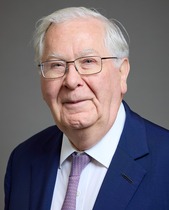
The End of Alchemy
The End of Alchemy is an essential work about the history and future of money and banking, the keys to modern finance. It presents fresh interpretations of these economic forces and points the way forward for the global economy. The bold solutions contained in this book cuts through current overstuffed and needlessly complex legislation to provide a clear path to durable prosperity and the end of overreliance on the alchemy of our financial ancestors.
Praise for The End of Alchemy
“An outstandingly lucid account of postwar economic policymaking and the dilemmas we now face. It is rare to encounter a book on economics quite as intellectually exhilarating as The End of Alchemy―a dazzling performance indeed.”
— John Plender, Financial Times
“I have read umpteen books about the financial crisis of 2007–2008 and its lessons. This is the cleverest one, brimming over with new ideas. While other ‘lords of finance’ publish memoirs, King has produced a brilliant analysis not only of what went wrong in the global financial system but also of what went wrong in economics itself.”
“A sophisticated and highly approachable study of how modern finance has lost its way. Few individuals are more qualified than Lord Mervyn King to imagine the banking of the future. His book should be required reading.”
“Mervyn King asks, ‘Why has almost every industrialized country found it difficult to overcome the stagnation that followed the financial crisis in 2007–2008, and why did money and banking, the alchemists of a market economy, turn into its Achilles heel?’ He addresses these questions, and much more. For those endeavoring to understand the greatest financial crisis of our time and the future of finance, this highly provocative book is a must-read.”
“Drawing on years of scholarly study of banking history and his real-world experience in fighting financial panic, Mervyn King has set out a new framework for monetary and financial reform. Seemingly simple in concept, it challenges prevailing banking and market practice. The End of Alchemy demands debate and well-reasoned response.”
— Paul Volcker

